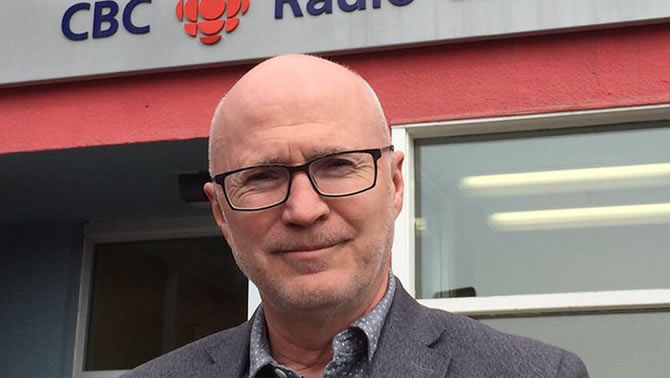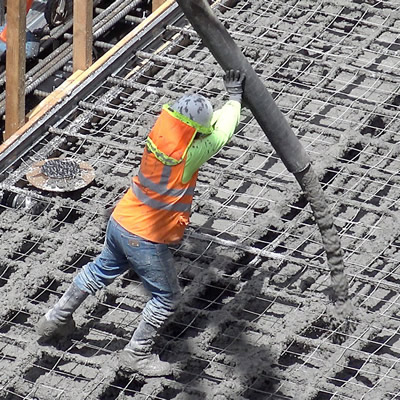Report digs into economic impact of rural coal mines on B.C.‘s Lower Mainland
The report was published by Resource Works, an independent organization created to improve discussion on natural resource topics

Resource Works Executive Director, Stewart Muir. — Photo by Stewart Muir
A recently published report shows that more than one-half of what Teck Resource Ltd. spends on goods and services at its five Elk Valley coal mines in southeastern British Columbia goes to suppliers in the Lower Mainland.
According to Elk Valley: Steelmaking Coal/Exploring the Economic Impact of British Columbia's Elk Valley Coal Mines, in 2013 Teck’s Elk Valley operations spent over $1 billion on supplies.
Of that amount, nearly 60 per cent ($609.3 million) went to businesses in the Lower Mainland Southwest Development Region.
“Anybody who doubts the importance of resource industries to the B.C. economy should read the report,” said author Marlyn Chisholm, senior research fellow of the Resource Works Society, which published the study. “It shows the major impact on the Lower Mainland economy of a single coal mining operation in the southeast.”
Chisholm said it is easy to take for granted the relationship between B.C.’s cities and the province's natural resources.
“British Columbians living in the province’s major cities can easily feel removed from the resource sector, which is largely based on projects in rural and remote regions,” she said.
Overlooking the benefits that flow from the resource sector can have significant negative consequences for public policy.
“If too many British Columbians feel they and their communities do not benefit, or benefit very little, from natural resources, it follows that resource issues may not receive the public attention they warrant,” Chisholm said.
Teck's Elk Valley operation gives a boost to the Lower Mainland economy in at least two ways.
Its metallurgical (steel-making) coal is exported from commodity ports in the Lower Mainland. And the largest expenditures on goods and services were made outside of the region, in Vancouver, Delta, North Vancouver and Langley.
Other findings of the report:
- There were jobs for 3,673 employees at the Elk Valley coal mines, plus 320 supporting workers at other Teck operations in B.C.;
- Total estimated direct wages from the Teck mines in 2014 were $457.6 million;
- Suppliers to the mines in 2014 had a total payroll of $34.5 million; and 345 full-time jobs were created by only six of Teck's key suppliers.
The report in its entirety can be read on the Resource Works website here.
Resource Works executive director Stewart Muir said the Elk Valley report shows the strong economic connection between a typical resource company and its network of goods and service suppliers throughout British Columbia.
“Any balanced conversation on resource development must consider these remarkable economic facts,” Muir said.
Founded in April 2014, the Resource Works Society is an independent organization that is open to all British Columbians who are concerned about their future economic opportunities.
The purpose of the organization is to tell the residents of the province about the importance to their personal well-being of British Columbia's resource industries. Resource Works believes responsible development of the province's resources creates direct and indirect jobs, and, at the same time, maintains a clean and healthy environment.
Muir says Resource Works wants to improve the state of public discourse on natural resource topics that are relevant to B.C.
“We seek to base arguments in fact and respectful dialogue, distinguishing between vested interests and broad interests, and engaging in a manner that seeks resolution, not endless confrontation,” he said.
Although it has been in existence for less than two years, Resource Works has already made its presence felt in a number of different ways. It has created a half-dozen reports like the one on the Elk Valley, as well as more than 200 articles. The society has more than 7,000 Facebook supporters, over 4,000 weekly newsletter subscribers and at least 5,000 Twitter followers.
Resource Works is the brainchild of Doug Horswill, who serves as the organization's chairman.
“I got the idea for Resource Works in 2013,” Horswill said. “I had worked for Teck and for the federal and provincial governments, and I saw there was a need, especially in the cities, for more people to understand the importance of resource development for our continued prosperity.”
Horswill said most of the debate around resource development in B.C. has been one-sided.
“Too often discussion has concentrated on all of the negative aspects of resource development,” he said. “It's seldom that anything positive is heard.”
Resource Works was created to correct that imbalance.
“We are a non-partisan, non-aligned society that's based on credible facts from independent research,” Horswill said.




